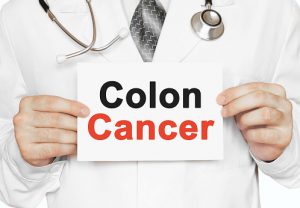
The prostate gland is a part of the male reproductive system that produces a fluid that mixes with sperm and other fluids during ejaculation. It sits just below the bladder and is normally about the size of a walnut.
Prostate cancer is an abnormal growth of cells within the prostate gland. Prostate cancer is one of the most common types of cancer in men and the second leading cause of cancer deaths among American men. The majority of men who reach the age of 80 are found to have prostate cancer, however, most of the types of prostate cancer grow slowly and may not contribute to any serious harm. Some types of prostate cancers are more aggressive and can spread to other parts of the body.
Prostate cancer, especially in its early stages, may not have any symptoms. When symptoms are present they may include difficulty starting urination, less force to the stream of urine, dribbling at the end of urination, needing to urinate frequently, urinating frequently at night, pain while urinating, blood in the urine or semen, difficulty starting or maintaining an erection, pain with ejaculation, pain or stiffness in the lower back, hips, pelvis and upper thighs, or unintended weight loss.
Although it is not known exactly what causes prostate cancer some risk factors for developing prostate cancer are older age (more than 65% of prostate cancers are diagnosed in men older than 65), race (African-American men are 60% more likely to develop prostate cancer than Caucasian men), family history (having a father or brother with prostate cancer) and obesity.
There is an ongoing debate among physicians and medical groups about screening for prostate cancer. Currently, many organizations including the U.S. Preventive Services Task Force (USPSTF) and the American Academy of Family Physicians (AAFP) recommend against routine screening for prostate cancer. Having a discussion with your doctor about prostate cancer screening can help you decide if you should consider undergoing prostate cancer screening based on your unique health history and preferences.
When screening is done there are two tests that are available. The available tests are a digital rectal exam (DRE) and prostate-specific antigen (PSA) test. To perform a digital rectal exam your doctor uses a gloved finger, inserted a few inches into your rectum, to check your prostate gland. A prostate-specific antigen test is a blood test that measures the level of PSA in your blood. Many men who have prostate cancer have elevated levels of PSA, however, PSA can also be elevated for less serious causes such as prostate enlargement or infection. Further testing is needed to diagnose cancer. Additional tests that your doctor may recommend to diagnose cancer include an ultrasound of the prostate and a biopsy of the prostate. A biopsy is when a small piece of the prostate is removed to look for abnormal cells.
Treatment of prostate cancer depends on many factors including your age, your overall health and the growth and spread of cancer when it is diagnosed. Some men who have slow-growing tumors may not need treatment right away and some may never need treatment. Other types of prostate cancer are aggressive and can quickly spread to other parts of the body making treatment difficult. Common treatment options include watchful waiting or expectant management (regular testing and checkups to assess for new signs or symptoms), radiation therapy (high-energy x-rays used to kill cancer cells), chemotherapy, surgery (having the prostate gland removed) and hormone therapy.
All content of this newsletter is intended for general information purposes only and is not intended or implied to be a substitute for professional medical advice, diagnosis or treatment. Please consult a medical professional before adopting any of the suggestions on this page. You must never disregard professional medical advice or delay seeking medical treatment based upon any content of this newsletter. PROMPTLY CONSULT YOUR PHYSICIAN OR CALL 911 IF YOU BELIEVE YOU HAVE A MEDICAL EMERGENCY.


